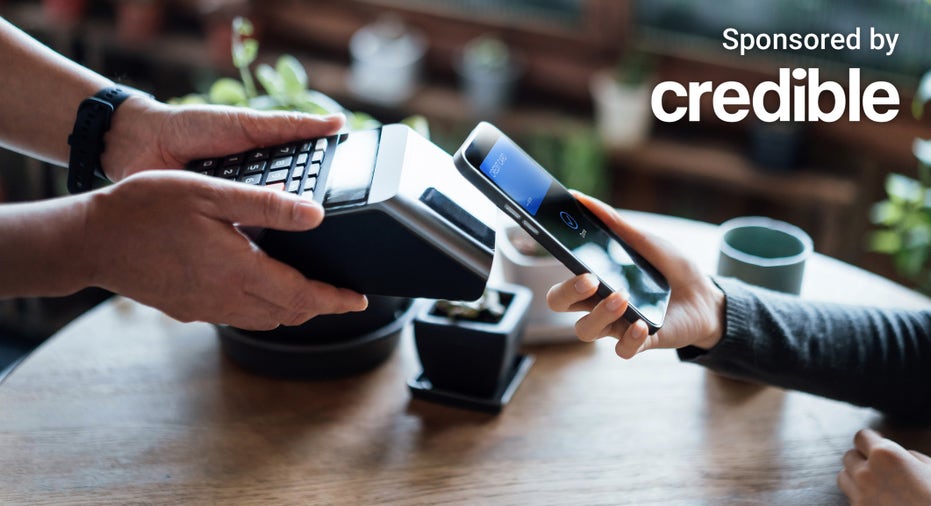Credit card borrowers slip back into pre-pandemic habits, TransUnion says — here’s how to pay off your debt
Consumers could be at risk as credit card balances rise

Consumers have slipped back into their pre-pandemic habits when it comes to paying down credit card debt, TransUnion said. (iStock)
Credit card debtholders have reverted to their pre-pandemic payment patterns, and have seen their card balances increase, according to recent data from TransUnion.
This is because the pandemic-related government relief programs and forbearances are becoming more distant, the study said.
There were 500 million bank-issued credit cards in mid-2022, up from 465 million cards the year before. And serious delinquency rates also increased 1.57%, TransUnion said. Card balances also rose to $5,270, up significantly from 2021 but still below pre-pandemic levels.
"As consumers, in particular those with credit cards, face challenges from rising interest rates, high inflation and other factors, it’s critical for lenders to better understand the predicament of their customers," Paul Siegfried, TransUnion senior vice president and card and banking business leader, said. "It’s important for lenders to understand changes to consumer payment behaviors sooner so they can work with consumers on payment plans or other programs that will prevent serious delinquencies down the line."
If you have higher credit card balances and are looking to pay down your debt, you could consider doing so with a personal loan at a lower interest rate. Visit Credible to find your personalized interest rate without affecting your credit score.
CREDIT ACCESS, DEBT BALANCES RISE IN Q2: TRANSUNION STUDY
Credit card rates could continue rising in the months ahead
Interest rates on credit cards have risen this year, which will likely continue in the months ahead as the Federal Reserve increases the federal funds rate.
The Fed raised interest rates by 75 basis points at its meeting in November, marking the fourth consecutive 75-basis point increase and the sixth rate hike this year. The move was in an effort to lower inflation, which hit 8.2% annually in September. This was a slight improvement from August but remains near the 40-year high set earlier this year and is much higher than the central bank’s preferred 2% annual average.
Because inflation remains high, the Federal Reserve will likely continue to raise the federal funds rate into 2023. This increase will cause interest rates to go up on credit products such as mortgages, student loans, personal loans and even credit cards. But because interest rates on credit cards are not fixed like many mortgages or personal loans, credit card users could see interest rates on their current cards begin to rise as well.
If you want to pay down your credit card debt before interest rates rise, you could consider using a product with a lower, fixed interest rate such as a personal loan. Visit Credible to compare multiple personal loan lenders at once and choose the one with the best rate for you.
THIS IS HOW MANY SHOPPERS USE CREDIT CARDS FOR BNPL PURCHASES: SURVEY
How to pay down credit card debt quicker
If you have credit card debt that you are looking to pay down, there are several methods you can use. These include the debt snowball method, in which you pay down the card with the lowest balance first, or the debt avalanche method, in which you pay down the card with the highest interest rate first.
But there are also ways that debtholders can use credit products to help them pay down their debt faster. Here are a few:
Take out a debt consolidation loan
Personal loans can be a good way to consolidate debt and lower your interest rate. With a lower interest rate, more of the monthly payment amount goes toward the principal balance, rather than accrued interest. If you want to see what personal loan amount you can get approved for, visit Credible to compare multiple options at once.
Refinance your mortgage
Another way to pay down debt is to use the equity in your home. Over the past year, home values have surged, giving homeowners access to record levels of equity. One way that homeowners can use this equity is through a cash-out refinance, which allows them to refinance their home with a larger loan and put the difference toward paying down high-interest debt. Visit Credible to see your cash-out refinance options and get prequalifed in minutes.
Transfer your credit card balance
One popular way to pay down debt is with a balance transfer credit card. This allows users to open a new credit card and transfer the balance of their old cards onto it. Typically, this balance will accrue zero interest for a set period, allowing card users time to pay down the balance. You can review your credit card options using an online marketplace like Credible.
Have a finance-related question, but don't know who to ask? Email The Credible Money Expert at moneyexpert@credible.com and your question might be answered by Credible in our Money Expert column.




















